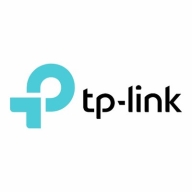

Aruba Wireless and Omada Access Points compete in the wireless networking category. Aruba Wireless appears to have the upper hand due to its comprehensive security features and advanced deployment flexibility.
Features: Aruba Wireless offers integrated firewall, AppRF, and captive portal authentication. Its modular configuration system and multi-site architecture provide extensive management capabilities. Omada Access Points are valued for their cost-effectiveness, ease of integration, and centralized management with cloud options.
Room for Improvement: Aruba Wireless needs a more stable software version, better documentation, and HP product integration. Users want easier access to firmware and return of Visual-RF mapping. Omada Access Points should increase distance coverage, improve API integrations, and enhance connection stability.
Ease of Deployment and Customer Service: Aruba Wireless supports on-premises, hybrid, and private cloud deployments, but customer support varies per representative. Omada Access Points are easily deployed on-premises or via public cloud, and users enjoy consistent and efficient customer support.
Pricing and ROI: Aruba Wireless is higher priced with additional licensing costs, though stability and functionality are appreciated. Omada Access Points provide a budget-friendly one-time cost structure, appealing to cost-conscious businesses. Both solutions offer satisfactory ROI, reducing downtime and simplifying management.
| Product | Market Share (%) |
|---|---|
| Aruba Wireless | 15.4% |
| Omada Access Points | 4.1% |
| Other | 80.5% |


| Company Size | Count |
|---|---|
| Small Business | 76 |
| Midsize Enterprise | 46 |
| Large Enterprise | 73 |
| Company Size | Count |
|---|---|
| Small Business | 10 |
| Midsize Enterprise | 2 |
| Large Enterprise | 4 |
Aruba Wireless is a secure, high-performance, multi-user wireless LAN supporting Wi-Fi 6. As workplaces and user expectations change, users can now maintain hybrid workplaces and IoT without compromising performance, reliability, or security. Aruba Wireless delivers better performance and capacity and greater AIOps visibility throughout all devices and users. In addition, through built-in network intelligence, network operations are made simpler while keeping everything secure through user and guest encryption.
Aruba Wireless, offered through Aruba Networks, is helping achieve digital transformation and IoT with seamless connectivity through multiple Wi-Fi access points. For the user’s convenience, Aruba Wireless provides indoor, outdoor, and remote access points to help boost faster and safer connectivity.
Choosing Aruba Wireless can help improve your organization’s user experience with wireless LAN in many ways, including:
Aruba Gateways and Controllers
Small organizations as well as large enterprises require excellent performance and security for cloud, mobility, and digital transformation. Therefore, in addition to the access points, Aruba Wireless also offers a variety of gateways and controllers, including:
Reviews from Real Users
Aruba Networks is aiding organizations in transforming to a hybrid work environment with Aruba Wireless. Users especially love its ability to work with many devices and its ability to group and manage access points.
A senior IT solutions architect at a manufacturing company says, "The most valuable feature is the fact that it can work with many devices. It supports everything that we need it to."
Gary F., a network administrator at wireless at Abilene Christian, notes, "I like the way it groups and manages access points."
Omada access points provide a business-class wireless network solution that’s flexible, manageable, secure, and easy-to-deploy. The free EAP Controller software allows users to manage hundreds of EAPs at multiple sites, all from a single location. The ability to control, adjust and visualize the entire network from any connected PC makes centralized business Wi-Fi management more efficient than ever before. Omada EAPs also feature captive portal and advanced RF management functions, which make them ideal for demanding, high-traffic environments such as campuses, hotels, malls and offices.
We monitor all Wireless LAN reviews to prevent fraudulent reviews and keep review quality high. We do not post reviews by company employees or direct competitors. We validate each review for authenticity via cross-reference with LinkedIn, and personal follow-up with the reviewer when necessary.